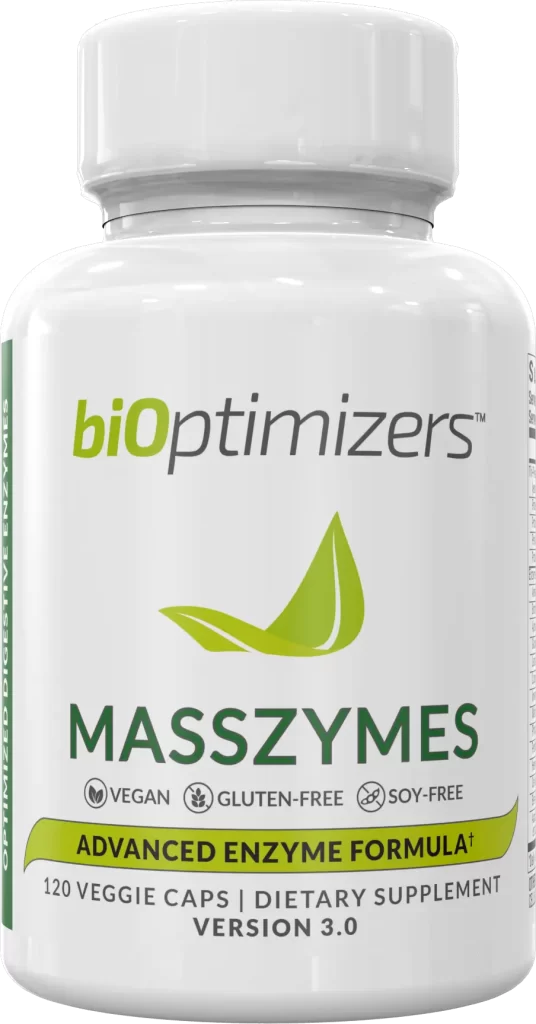Top 10 Hard to Digest Vegetables You Should Know About
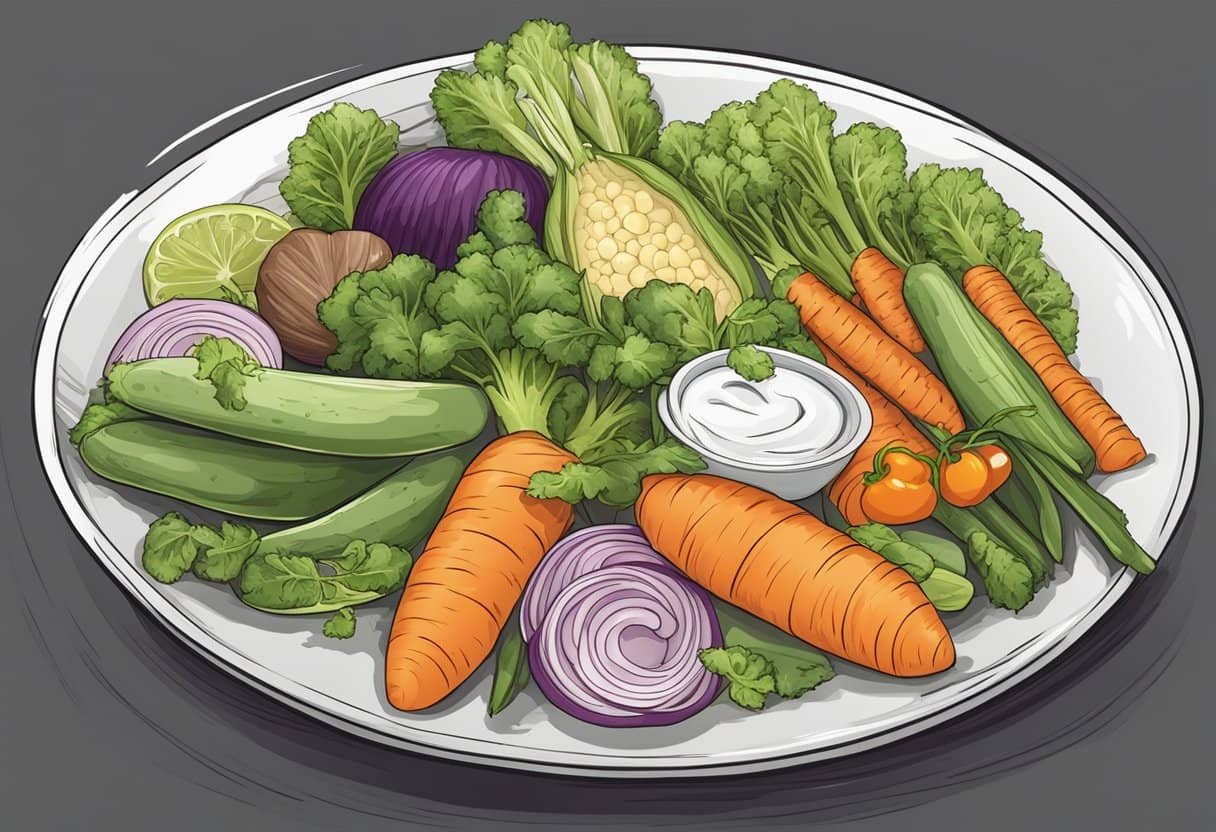
If you’ve ever experienced bloating, gas, or abdominal discomfort after eating vegetables, you’re not alone. Some vegetables are harder to digest than others, and can cause digestive issues for many people.
☝️Throughout the article, you will find numbers in brackets with links to scientific literature and trusted sources that support the information provided. If you find a typo or any discrepancies, please contact us at hello@foodnourish.net.
Vegetables that are high in fiber, such as broccoli, Brussels sprouts, and cauliflower, can be particularly difficult to digest, especially if you’re not used to eating them regularly.
In addition to fiber, some vegetables contain complex carbohydrates and sugars that can be hard for your body to break down.
For example, beans and lentils are notorious for causing digestive issues, as they contain a type of carbohydrate called oligosaccharides that is not easily digested by the human body. [1]
Similarly, cruciferous vegetables like cabbage and kale contain a type of sugar that can be difficult to digest, especially if they’re eaten raw or in large quantities. [2]
In this article we are going to explore the top 10 hard to digest vegetables and suggest ways to make them more digestible.
Here’s a table summarizing the top 10 vegetables that are hard to digest as well as the reasons why.
| Vegetable | Reason for Digestive Difficulty |
|---|---|
| Cruciferous Vegetables | Fermentable fibers leading to gas and indigestion; chewing them thoroughly can help break them down. |
| Raw Onions | Organosulfur compounds, fructans, and quercetin may irritate the stomach; cooking onions makes them more digestible. |
| Beans | Oligosaccharides, a type of sugar, not fully broken down by the body, leading to fermentation, gas, and bloating; soaking and enzymes can help. |
| Artichokes | Inulin, a poorly digested carbohydrate, is fermented by gut bacteria, causing gas and bloating; also high in fructans. |
| Peas | FODMAPs, lectins, and poorly digested sugars lead to gas, bloating, and cramping; cooking can help mitigate these effects. |
| Corn | Tough cellulose fiber and complex carbohydrates make corn hard to digest; chewing well and proper cooking methods help. |
| Bell Peppers | Tough cellulose fiber in the skin, fructose, solanine, and flavin can be hard on digestion; cooking and removing the skin can help. |
| Chili Peppers | Capsaicin irritation, slow digestion, and high fiber content can lead to discomfort; removing seeds, cooking, and consuming fluids can help. |
| Allium Family (Garlic, Leeks, Chives, Scallions) | High fructose content, allicin, and fructans can contribute to digestive issues like GERD and gas; effects vary among individuals. |
| Mushrooms | Chitin in cell walls, difficult-to-digest proteins, and raffinose can cause discomfort; cooking methods and thorough chewing can aid digestion. |
Top 10 Hard to Digest Vegetables
If you are experiencing digestive issues, it may be helpful to take a closer look at your diet. Some vegetables are harder to digest than others and can cause gas, bloating, and discomfort.
Here are the top 10 hard to digest vegetables that you may want to limit or avoid:
1. Cruciferous Vegetables
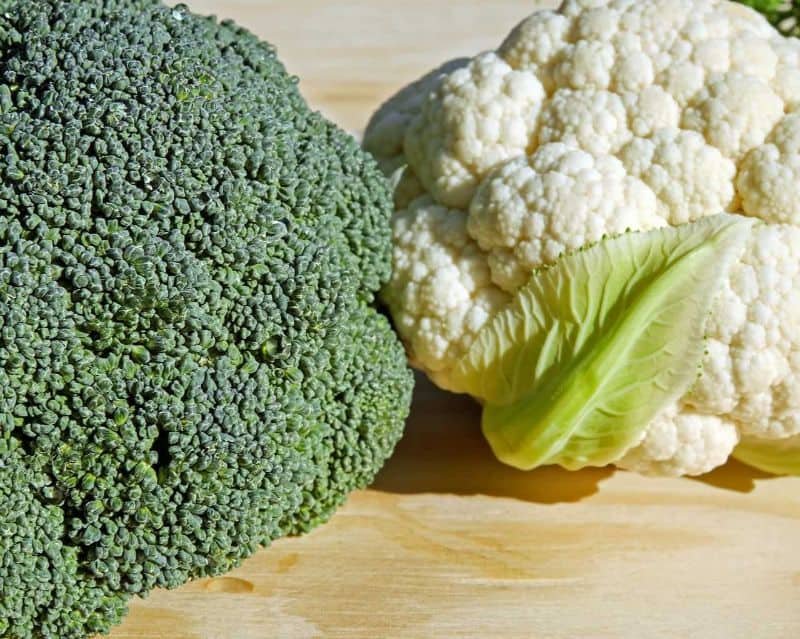
Cruciferous vegetables, such as broccoli, cabbage, and cauliflower, contain fermentable fibers that can lead to digestive issues.
These fibers may not break down sufficiently and instead ferment in the colon, leading to gas and indigestion.
If you have strong digestion, eating raw or lightly cooked cruciferous vegetables is best. Chewing them thoroughly helps you break them down.
2. Raw Onions
Onions are packed with phytonutrient compounds, many of which are good for heart health. However, some of these compounds irritate the stomach.
The following phytonutrient compounds in onions may irritate the stomach:
- Organosulfur compounds: These compounds are responsible for the pungent smell and flavor of onions. When onions are chopped or sliced, they release enzymes that convert organosulfur compounds into sulfuric acid, which can irritate the lining of the stomach.
- Fructans: Fructans are a type of carbohydrate that is difficult to digest. They can cause gas, bloating, and diarrhea in some people.
- Quercetin: Quercetin is a flavonoid that has anti-inflammatory and antioxidant properties. However, it can also irritate the stomach in high doses.
Onions also contain histamine, which is a compound that can cause allergic reactions in some people. Histamine can also irritate the stomach. [3]
Cooked forms of onions are more easily digestible than raw onions.
3. Beans
While not a vegetable, beans are often included in this category because they contain a type of sugar called oligosaccharides that the human body can’t break down fully.
The human body doesn’t produce the enzyme necessary to break down this sugar.
When undigested food particles like oligosaccharides enter the large intestine, they’re broken down by bacteria. This process causes fermentation, which produces gas.
While a little bit of gas is normal, excessive gas, especially when it’s painful or smells bad, could indicate a problem.
To prevent or reduce reactions to beans, you could Soak the beans before cooking. This can help break down the oligosaccharides and prevent gas.
Taking digestive enzymes like MassZymes, with your meals can also help break down the oligosaccharides and ease gas and bloating.
4. Artichokes
Artichokes, particularly Jerusalem artichokes, contain a carbohydrate called inulin. Unlike typical starches, inulin is not easily digested by our bodies. [4]
Instead, it is fermented by gut bacteria, which can lead to gas and bloating. This is why artichokes are often considered hard to digest.
Additionally, artichokes are high in fructans, a type of fiber that can cause gas and bloating problems. [5]
Despite these effects, artichokes are highly nutritious and offer numerous health benefits.
5. Peas
Peas, like other legumes, contain carbohydrates that are poorly digested. They are loaded with healthy protein and fiber, but they also have hard-to-digest sugars that cause gas and cramping.
Your body doesn’t have the necessary enzymes that can break them down. Bacteria in your gut do the work instead, giving off gas in the process. [6]
For example, Peas contain fermentable oligosaccharides, disaccharides, monosaccharides, and polyols (FODMAPs). [7]
FODMAPs are a type of carbohydrate that is difficult to digest and can cause digestive problems such as gas, bloating, and diarrhea in some people.
Peas also contain lectins, which are proteins that can bind to carbohydrates in the digestive system. This can interfere with the absorption of nutrients and cause digestive problems in some people. [8]
This is why peas are often considered hard to digest.
Despite these effects, peas are highly nutritious and offer numerous health benefits.
6. Corn
Corn is hard to digest because it contains tough fiber called cellulose, which our bodies can’t break down. This fiber is vital for plants but not for us. [9]
Corn also has a complex carbohydrate called amylopectin, which is tricky to digest if not cooked properly. [10]
To make corn easier on your stomach:
- Chew it well to break down the tough parts.
- Cook it right to soften the complex carbohydrates.
- Go for corn products that have been treated with a special process called nixtamalization, which makes them more digestible.
7. Bell Peppers
Bell peppers can be tough on digestion for two main reasons:
- Tough Skin: The skin of bell peppers has also the fiber called cellulose that’s hard for our bodies to handle, especially when eaten raw.
- Fructose: Bell peppers contain fructose, a type of sugar that some people find tough to digest. If you’re sensitive to fructose, eating bell peppers might lead to gas, bloating, and diarrhea.
Bell peppers also have two substances that can annoy your stomach:
- Solanine: It’s a toxin found in bell peppers, along with other nightshade family members like tomatoes and potatoes. Unripe peppers have more solanine, so ripe ones are a better choice. [11]
- Flavin: This is in the white part and seeds of bell peppers, and it can make your stomach uncomfortable.
If you have a delicate stomach, it’s a good idea to avoid eating raw bell peppers. Cooking them breaks down the tough skin. You can also peel off the skin and remove the seeds before eating to make them easier on your stomach.
8. Chill Peppers
Chili peppers can be tough on your tummy for two main reasons:
- Capsaicin Trouble: The stuff that makes chili peppers hot is called capsaicin. It can annoy the inside of your digestive system. It binds to a part of your body that senses heat and pain, causing a burning feeling in your mouth and even irritating your stomach and intestines.
- Slow Digestion: Capsaicin can slow down how your body breaks down food. It messes with the enzymes and hormones that help with digestion, making you feel full and uncomfortable after eating chili peppers.
Also, chili peppers have a lot of fiber, which is good for your digestion but can be hard to handle. Too much fiber can lead to gas, bloating, and constipation.
To make chili peppers easier on your tummy:
- Remove the seeds and the white parts inside the peppers. They have the most capsaicin.
- Cook the peppers until they’re soft. This helps reduce the irritating capsaicin.
- Eat chili peppers with other foods to dilute the capsaicin’s effect.
- Drink lots of fluids after eating chili peppers to wash away the capsaicin.
9. Garlic, leeks, chives, and scallions
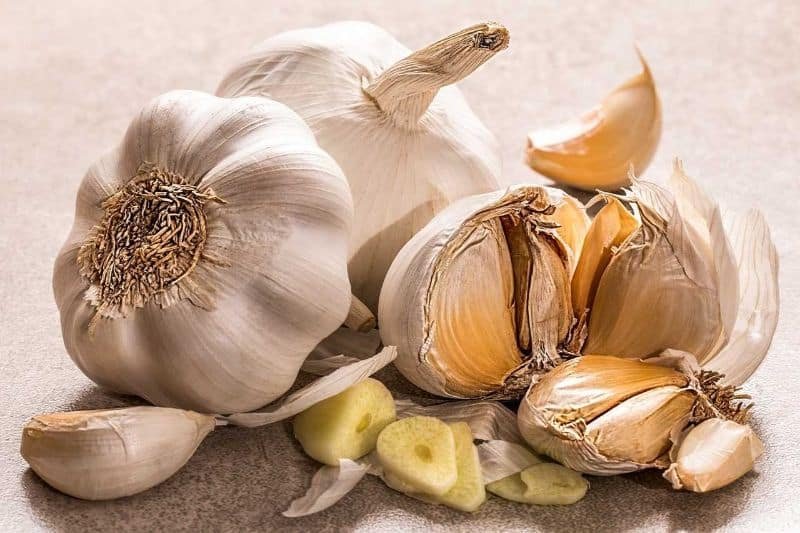
Garlic, leeks, chives, and scallions, all part of the Allium family, can be difficult to digest due to their high fructose content. This can indirectly contribute to Gastroesophageal Reflux Disease (GERD). [12]
Garlic, in particular, has a high concentration of the phytonutrient allicin, which has a high sulfur content3. While this can be beneficial for cleansing the digestive tract and preventing colon cancer, it can also cause digestive problems.
For instance, it can lead to gastroesophageal reflux disease (GERD), a condition characterized by gastric acid flowing back to the esophagus.
Moreover, these vegetables contain fructans, a group of carbohydrates that can cause digestive problems. Fructan intolerance can lead to the fermentation of these carbohydrates in the gut, causing symptoms like painful gas, bloating, and acid reflux. [12]
However, it’s important to note that these effects can vary from person to person, and some people may not experience any digestive issues when consuming these foods.
10. Mushrooms
Yes, as much hard it is to believe, mushrooms can be hard to digest for some people.
Here’s why:
- Chitin: The cell walls of mushrooms contain chitin, a polysaccharide that is difficult for the human stomach to digest. [13]
- Proteins: Mushrooms contain a lot of proteins that can be difficult for the stomach to digest.
- Raffinose: This complex sugar passes through the small intestines into the large intestines where bacteria breaks it down, producing gases which can cause discomfort. [14]
However, cooking mushrooms can make them easier to digest as it helps break down these hard-to-digest components.
For example, steaming, sautéing, frying, baking, and grilling are some of the methods that can be used to cook mushrooms. It’s also recommended to chew them well to facilitate digestion.
Please note that the effects can vary from person to person, and if you have prior digestion problems or IBS, mushrooms can cause digestive distress
☝️ While these vegetables may be hard to digest for some people, it’s important to note that everyone’s digestive system is different. You may find that some of these vegetables don’t cause any issues for you, while others may cause discomfort.
Impact on the Digestive System
Eating vegetables is essential to maintaining a healthy diet, but some vegetables can be difficult to digest.
When you consume hard-to-digest vegetables, they can cause discomfort and digestive problems that can affect your daily life. Here are some of the ways that hard-to-digest vegetables can impact your digestive system:
Gas and Bloating
Hard-to-digest vegetables can cause gas and bloating in your digestive system. This is because they contain complex carbohydrates that your body has difficulty breaking down.
When these carbohydrates reach your large intestine, the bacteria in your gut begin to ferment them, which can produce gas and cause bloating.
Constipation
Eating too many hard-to-digest vegetables can also cause constipation. This is because they contain a lot of insoluble fiber, which adds bulk to your stool but can be difficult to pass through your digestive system.
If you’re already prone to constipation, eating too many hard-to-digest vegetables can make the problem worse.
What you can do is combine these foods with foods that are good for constipation.
Diarrhea
On the other hand, some hard-to-digest vegetables can cause diarrhea. This is because they contain soluble fiber, which absorbs water in your digestive system and can make your stool loose and watery.
If you’re sensitive to soluble fiber, eating too many hard-to-digest vegetables can cause diarrhea.
Indigestion and Heartburn
Hard-to-digest vegetables can also cause indigestion and heartburn.
This is because they can be difficult for your stomach to break down, which can cause acid reflux and heartburn. If you’re prone to these conditions, it’s best to avoid eating too many hard-to-digest vegetables.
Irritable Bowel Syndrome (IBS)
If you have irritable bowel syndrome (IBS), eating hard-to-digest vegetables can trigger symptoms such as abdominal pain, cramping, and bloating. It’s important to identify which vegetables trigger your symptoms and avoid them as much as possible.
Abdominal Pain and Cramps
Eating hard-to-digest vegetables can also cause abdominal pain and cramps. This is because they can be difficult for your digestive system to process, which can cause discomfort and pain in your abdomen.
Digestive Discomfort
Overall, eating hard-to-digest vegetables can cause a range of digestive discomforts. It’s important to listen to your body and pay attention to how different vegetables affect your digestive system. If you’re experiencing discomfort, try cutting back on hard-to-digest vegetables and see if your symptoms improve.
Understanding Digestion
Digestion is the process by which your body breaks down food into smaller components that can be absorbed and utilized by your body. Here are the steps involved during food digestion.
- The process of digestion begins in your mouth, where saliva helps to break down food and make it easier to swallow.
- Saliva contains enzymes that help to break down carbohydrates and fats in the food you eat.
- As the food travels through your digestive system, it passes through your esophagus and into your stomach.
- In your stomach, the food is mixed with digestive enzymes and acids that help to break it down further.
- Gastric emptying is the process by which food leaves your stomach and enters your small intestine.
- In your small intestine, the majority of the nutrients from your food are absorbed into your bloodstream.
- Digestive enzymes from your pancreas and bile from your liver help to break down the food even further so that it can be absorbed more efficiently.
- The remaining waste products from your food then pass into your large intestine, where water is absorbed and the waste products are formed into solid feces.
- The bacteria in your gut play an important role in the digestive process, helping to break down food that your body is unable to digest on its own.
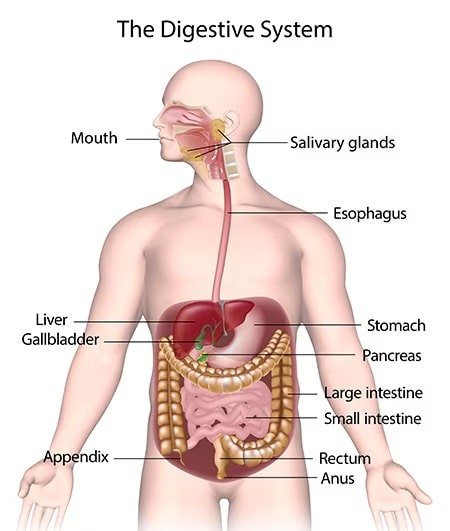
Overall, understanding how your body digests food can help you make informed choices about the foods you eat and how they impact your overall health.
Role of Fiber in Digestion
When it comes to digestion, fiber plays a crucial role in maintaining a healthy digestive system. High-fiber foods, such as fruits, vegetables, and whole grains, help regulate bowel movements and prevent constipation.
There are two types of fiber: soluble and insoluble.
- Soluble fiber dissolves in water and forms a gel-like substance in the intestines, which slows down digestion and helps lower cholesterol levels.
- Insoluble fiber, on the other hand, does not dissolve in water and adds bulk to stool, which helps promote regular bowel movements.
While fiber is an essential nutrient for a healthy digestive system, too much fiber can also have negative effects.
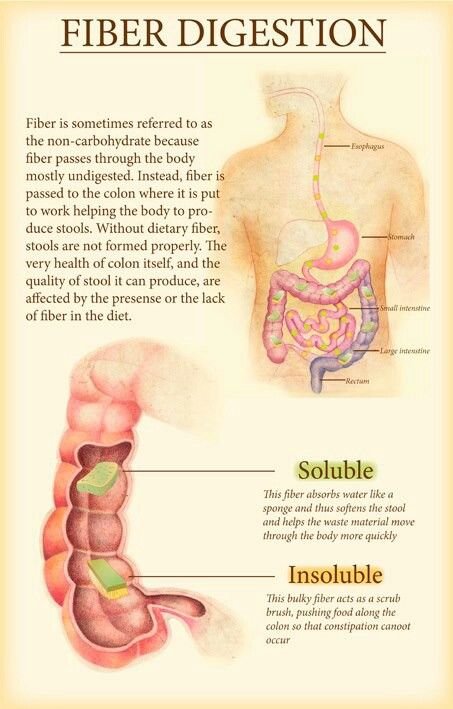
Consuming too much fiber can cause bloating, gas, and abdominal discomfort. It is important to gradually increase your fiber intake and drink plenty of water to help prevent these symptoms.
Fiber plays an important role in digestion and maintaining a healthy digestive system. However, it is important to consume fiber in moderation and gradually increase your intake to prevent discomfort.
If you experience digestive issues, consider reducing your intake of hard-to-digest high-fiber foods, such as cruciferous vegetables and beans.
Other Factors Affecting Digestion
While some vegetables are known to be harder to digest than others, there are other factors that can also affect the digestion of vegetables.
Here are some other factors affecting digestion that you should keep in mind:
- Microbiota: Our bodies host many helpful microbes, like bacteria and yeast, in our guts. They aid digestion, boost our immune system, and even produce vitamins. Poor nutrition and antibiotic use can harm these friendly microbes and cause issues. [15]
- Fermentation: Fermentation is when microorganisms break down carbohydrates without oxygen. In our guts, this happens when undigested carbs reach the large intestine, leading to gas and other byproducts that affect digestion. [15]
- Silage Preservation: Silage is a type of animal feed made from preserved grass or crops. Factors like how it’s stored, additives used, and chop length can affect its quality. Bad preservation can lead to spoiled silage that can’t be used. [16]
- Processing Conditions: How we process things like leftover materials from making olive oil can impact their health benefits. Methods like freezing or drying can change the content of beneficial compounds. [17]
- Lactose Intolerance: Some people can’t digest lactose, a sugar in milk, due to a lack of the enzyme lactase. Age, gender, and genetics can influence lactose intolerance. [18]
- Nutritional Requirements: Animals, including mammals, birds, and fish, have different nutritional needs. Factors like age, gender, size, activity level, and health affect what and how much they should eat. Different species also have distinct dietary requirements based on their digestive systems and the foods available to them. [19]
Mitigating Digestive Issues with Diet
If you are experiencing digestive issues, changing your diet can help alleviate your symptoms. Certain foods can be harder to digest than others, and avoiding these foods or preparing them in a different way can make a big difference. Here are some tips to help you mitigate digestive issues with your diet:
Focus on Easily Digestible Foods
Some foods are easier to digest than others. Focus on easily digestible foods such as cooked vegetables, fruits, grains, and lean proteins. Try to avoid foods that are high in fat, fiber, or sugar, as these can be harder to digest.
Incorporate Probiotics into Your Diet
Probiotics are good bacteria that can help improve your gut health. Incorporate probiotics into your diet by eating foods such as yogurt, kefir, or fermented vegetables. These foods can help improve digestion and reduce inflammation in the gut.
Drink Plenty of Water
Drinking plenty of water can help keep your digestive system running smoothly. Aim to drink at least eight glasses of water per day. You can also drink herbal teas, such as ginger or peppermint tea, which can help soothe the digestive system.
Avoid Hard-to-Digest Vegetables
Some vegetables can be harder to digest than others. Vegetables such as broccoli, cauliflower, and Brussels sprouts can be particularly difficult to digest. If you want to eat these vegetables, try cooking them thoroughly or steaming them to make them easier to digest.
Consider Dairy Alternatives
If you are lactose intolerant or have trouble digesting dairy products, consider dairy alternatives such as almond milk or soy milk. These products are typically easier to digest and can help reduce digestive issues.
Eat Smaller, More Frequent Meals
Eating smaller, more frequent meals throughout the day can help reduce digestive issues. This allows your digestive system to work more efficiently and can help reduce bloating and discomfort.
Avoid Fried and Processed Foods
Fried and processed foods can be harder to digest and can cause inflammation in the gut. Try to avoid these foods and opt for whole, unprocessed foods instead.
By following these tips, you can help mitigate digestive issues with your diet. Remember to listen to your body and make changes to your diet as needed to help improve your digestive health.
How can I make vegetables easier to digest?
If you have trouble digesting vegetables, there are several things you can do to make them easier to digest. Here are some tips:
Cook your vegetables
Cooking your vegetables can help break down their tough fibers and make them easier to digest. Steaming, boiling, or roasting vegetables can all be effective methods. However, be careful not to overcook them, as this can cause them to lose nutrients.
Chew your vegetables thoroughly
Chewing your vegetables thoroughly can also help make them easier to digest. When you chew your food well, it breaks down into smaller pieces, which makes it easier for your body to digest and absorb the nutrients.
Choose the right vegetables
Some vegetables are harder to digest than others. If you have trouble digesting vegetables, try choosing vegetables that are easier to digest, such as:
- Cooked carrots
- Cooked zucchini
- Cooked squash
- Cooked sweet potatoes
- Cooked green beans
- Cooked spinach
Try digestive aids
If you still have trouble digesting vegetables, you may want to try digestive aids, such as digestive enzymes or probiotics.
These supplements can help your body break down food more easily and improve your digestion.
Frequently Asked Questions
Final Take
Overall, it’s important to be mindful of the vegetables that are harder to digest. While they may be packed with nutrients, they can also cause discomfort and digestive issues.
If you’re someone who struggles with digestive issues, it may be best to limit your intake of these vegetables or cook them in a way that makes them easier to digest. Some tips include steaming, roasting, or sautéing vegetables instead of eating them raw.
At the end of the day, it’s all about finding what works best for you and your body. If you notice that certain vegetables are causing discomfort, it may be worth experimenting with different cooking methods or limiting your intake. Listen to your body and make adjustments as needed.
Remember, a healthy diet is all about balance and moderation. While it’s important to incorporate a variety of vegetables into your diet, it’s also important to prioritize your digestive health and avoid any unnecessary discomfort.
MassZymes 3.0 Enzymes
THE STRONGEST ENZYME FORMULA EVER: MassZymes (full review) is a full-spectrum enzyme formula with more protease than any other commercially available, with 5 different kinds of protease.
Plus, it contains all the other key enzymes you need for optimal digestion.

Check these articles on Digestion



